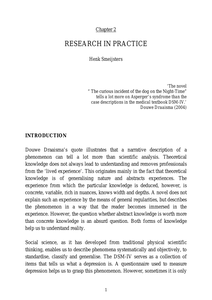This project challenges traditional cognition-based research methods. While informative, they do not fully capture the complexity of economic transformation. This hinders our ability to support regenerative entrepreneurs in their journey toward a fair and sustainable economy. At AUAS Centre for Economic Transformation, our search for a more integrative approach to building new business models, led us to arts- and nature-based research. We are intrigued by art- and nature-based research as a tool to integrate cognitive, emotional and practical elements (head/ heart/ hands). Our curiosity led us to the following research question: how can innovative methodologies that focus on lessons from the arts (creativity) and nature (diversity) help to enrich the understanding of economic transformation among researchers and entrepreneurs engaged in regenerative practices. This study employs an action-oriented research approach, including progressive learning and reflective monitoring and evaluation. During workshops the researchers and entrepreneurs go outside and collect pieces of nature. With these materials they compose their own work of art. Participants, under guidance, step-by-step, 'engage in dialogue' with their artwork based on their own question, eventually experiencing (a direction to) an answer. This project brings together researchers with expertise in the diverse fields of entrepreneurship, craftsmanship, co-ownership and economic ecosystems and entrepreneurs of regenerative practices. They emerge themselves in innovative research methods aimed at integrating head, heart, and hands to enhance diversity and creativity and enrich their understanding of economic transformation. The presentation will be enriched by the works of Claudy Jongstra, a Dutch artist and regenerative entrepreneur.
DOCUMENT

The road to science for the arts therapies requires research on the full breadths of the spectrum, from systematic case studies to RCTs. It is important that arts therapists and arts therapeutic researchers reflect on the typical characteristics of each research paradigm, research type and research method and select what is appropriate with regard to the particular research question. Questions rather differ. Finding out whether a certain intervention has a particular effect with a large group of clients differs from wanting to know which change occurs at which moment by which interventions in the treatment of an individual client. Research in practice remains close to questions encountered by arts therapists in their daily practice. It concerns questions arts therapists have about their lived experience of acting due to the complexity and variability of practice. By carrying out research in practice that links up with those questions, evidence evolves; evidence that enables the professional to proceed and that makes explicit what often remains implicit and unsaid. What is explicit can be communicated, can be criticised and tested. The professional himself does the road to science of the profession. The investment in professionals’ research in practice is the motor of knowledge-productivity that bridges the theory-practice gap. Research in the arts therapies should lead to ‘knowledge’ in which the ‘art’, nor the ‘subject’ of therapist and client have been lost.
DOCUMENT
